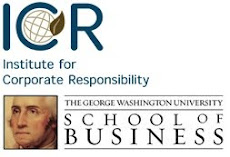
For our Organizations and Leadership Class, we applied 10% of our time to a self-directed learning project of our choice. For my project, I decided to learn more about waste and what we can each do about it.
According to the Environmental Protection Agency, each American produces more than four pounds of waste per day, a figure that has almost doubled since 1960. This is significant because we are running out of landfill space to put waste, wasting natural resources and creating toxicity in our soil and water that can be harmful to our health and the health of future generations. A few months ago, I read a story in a magazine about a woman who believed that a large part of the reason why we create more waste is due to the fact that our trash is “out of sight, out of mind.” We throw things away, put them on our corner, someone comes to get it and we never see it again. As a public awareness message, she decided to carry the waste she produced with her for several months to highlight this issue. For my learning project, I decided to mimic her to learn more about how I personally can reduce the waste I produce.
For four days, a day for every pound the average American produces daily, I carried the waste I produced with me everywhere. I brought my bag of trash to school, restaurants, concerts and grocery stores. I did not include anything that was recyclable, biodegradable or unsanitary. I rinsed out food containers and I would compact everything before I would put it in my bag. The biggest lesson I learned is that when you have to carry your waste, you quickly find ways to reduce it.
Most of my waste was coming from food and beverage packaging. I would throw away coffee cups from Starbucks or Styrofoam salad boxes. To remedy this, I purchased a reusable travel coffee mug and started packing my lunch in Tupperware or in aluminum foil that I would clean and recycle. If I did purchase something, I requested to not have a receipt printed and to have minimal packaging, so no extra bags or napkins. At home, I would wipe down my counters in the kitchen with a rag versus paper towels. I made sure to recycle parts of junk mail that I could, like envelopes or inserts. I bought recycled goods like paper towels in bulk or biodegradable sponges. I purchased a new purse and asked the store clerk to keep the padding they put inside to use on another display purse. These tiny changes were so easy to make and at the end of four days, I only had one bag of trash that weighed about two pounds.
I was amazed by how much I did not even think about what I was throwing away before I started this project. Even during my project, there were times when I would catch myself still throwing something away because it was just second nature to not really think about the waste I was producing. But then I thought more about how easily I could make small changes and how that added up to lots of waste savings, I couldn’t help but be excited every time I realized I was not adding something to a landfill!
Not only did I learn more about how I can make better choices in terms of waste, but I also learned more about the issue in general. As part of my learning project, I read articles, websites and blog postings. Landfills are not only running out of room, but they are also filled with items that can be recycled or reused. Trash in our oceans and water runoff from landfills is contaminating the food we eat and water we drink. Consumer packaged goods companies are working to develop packaging that is minimal and made from recycled sources and I can do my part to increase the demand of these products by spending a few extra cents. For example, I purchased pens that were made with 62% pre-consumer recycled plastic for only $0.20 more than other choices.
In the end, I was thrilled to throw away my bag of trash when my four days were complete. I don’t think we have to live in our trash to solve our waste and landfill problems. However, I do think we each have to think more about what we waste and how we can reduce it. This entire process was so helpful in terms of making me realize how I can personally make a difference in my daily choices for a healthier and more sustainable planet.
Patty Pina, Global MBA 2011




